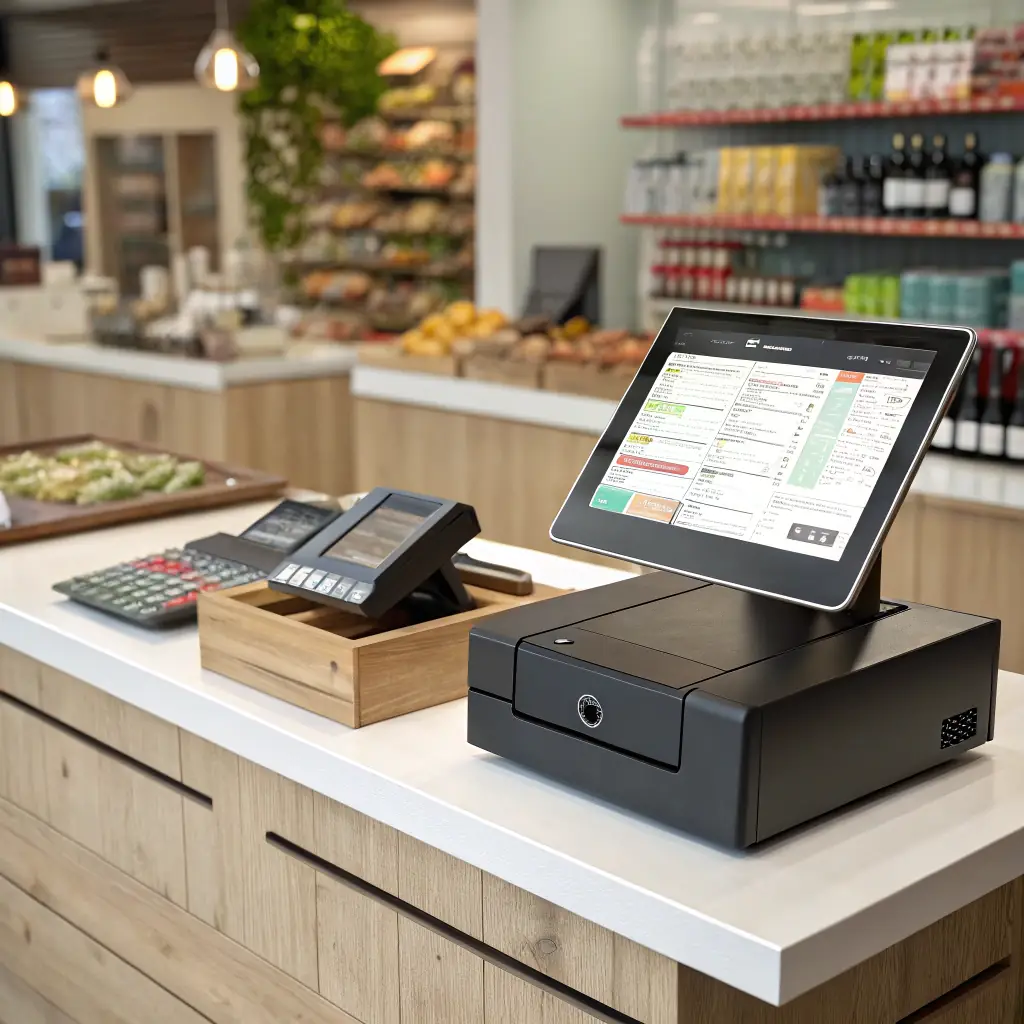
Your Business with a POS
The Beginner’s Guide to Setting Up a POS System: Everything You Need to Know
Having a reliable and efficient Point-of-Sale (POS) system isn’t a luxury—it’s a necessity. Whether you’re running a retail shop, café, beauty salon, or food truck, the right POS system can streamline your operations, boost sales, improve customer experiences, and provide the insights you need to grow.
But if you’re new to POS systems, the setup process can feel overwhelming. Don’t worry—this beginner’s guide will walk you through everything you need to know, step by step.
What Is a POS System?
A Point-of-Sale (POS) system is the combination of hardware and software that allows your business to accept payments, track sales, manage inventory, and generate reports. Modern POS systems go far beyond just ringing up transactions—they serve as your central hub for business operations.
Step 1: Understand Your Business Needs
Before purchasing a POS system, take time to understand what features are most important for your business. Ask yourself:
Will I need to track inventory?
Do I offer curbside pickup, delivery, or mobile checkout?
Do I need employee time-tracking or scheduling features?
Am I looking for something simple, or a full-service POS solution?
Understanding your operational needs will help you choose a system that matches your goals and supports your growth.
Step 2: Choose the Right POS Software
Not all POS software is created equal. There are systems designed for specific industries like retail, hospitality, or salons. Here are a few key features to look for:
Sales tracking
Inventory management
Customer relationship management (CRM)
Employee management
Integration with accounting and ecommerce platforms
Mobile and cloud-based access
Popular POS software options include Square, Clover, Lightspeed, and Toast—each offering unique tools and pricing models.
Step 3: Select Compatible Hardware
Depending on your chosen software, you may need specific hardware, such as:
POS terminal or tablet (e.g., iPad)
Receipt printer
Cash drawer
Barcode scanner
Card reader or EMV terminal
Kitchen display system (for restaurants)
Cloud-based systems often work with mobile devices, reducing upfront hardware costs.
Step 4: Set Up Payment Processing
To accept credit cards and digital payments, you’ll need a merchant account or payment processor. Some POS platforms include built-in payment processing, while others let you connect a third-party processor. Look for low transaction fees, security features like PCI compliance, and support for contactless payments (Apple Pay, Google Pay).
Step 5: Configure Your System
Once your software and hardware are ready, it’s time to configure:
Add your products or services
Set up tax rates and discount rules
Input employee accounts and permissions
Customize receipts and store branding
Connect integrations (accounting, CRM, delivery platforms)
Most providers offer tutorials and customer support to guide you through this step.
Step 6: Train Your Staff
Your POS is only as good as the people using it. Train your employees on how to:
Ring up sales
Process returns and refunds
Use the customer database
Handle cash vs. card transactions
Troubleshoot common issues
Ongoing training ensures smoother operations and better customer service.
Step 7: Monitor, Adjust, and Scale
Once your POS system is up and running, regularly review your data. Analyze:
Top-selling products
Peak sales times
Inventory turnover
Employee performance
Use these insights to make smarter business decisions, adjust your offerings, and plan for expansion.
Why a POS System Is an Investment—Not Just a Tool
A well-implemented POS system does more than process transactions—it improves cash flow, saves time, enhances customer loyalty, and helps you scale. It’s the silent partner in your day-to-day operations that works 24/7 to optimize your business.
Final Thoughts
Setting up your first POS system can be one of the most empowering decisions you make as a small business owner. With the right setup, you’ll feel more in control, more efficient, and more prepared to compete in today’s marketplace.
✅ Ready to Elevate Your Business?
If you’re serious about running your business smarter—not harder—now is the time to get started. Our team at REI Invest Capital can help you choose the perfect POS solution tailored to your industry and business goals. We don’t just offer systems—we provide full support, training, and insights to help you thrive.
We don’t see you as just a merchant ID—we see you as a VIP. Let’s build your business together.
